Intro
Discover the ultimate Covid Testing Kits Guide, featuring accurate diagnostic tools, rapid antigen tests, and PCR kits for safe and reliable coronavirus detection, helping you navigate the world of COVID-19 testing with confidence.
The COVID-19 pandemic has brought about a significant shift in the way we approach healthcare, with a strong emphasis on testing and diagnosis. As the virus continues to evolve, it's essential to stay informed about the latest developments in COVID-19 testing kits. These kits have become a crucial tool in the fight against the pandemic, enabling individuals to take control of their health and make informed decisions. With the numerous options available, it's vital to understand the different types of COVID-19 testing kits, their benefits, and how to use them effectively.
The importance of COVID-19 testing kits cannot be overstated. They provide a convenient and relatively quick way to determine whether an individual has been infected with the virus. This information is critical in preventing the spread of the virus, as it enables individuals to take necessary precautions and seek medical attention if needed. Furthermore, COVID-19 testing kits have played a significant role in helping healthcare professionals track the spread of the virus and develop effective strategies to combat it.
As the demand for COVID-19 testing kits continues to grow, it's essential to stay up-to-date with the latest advancements in this field. From PCR tests to rapid antigen tests, there are various types of COVID-19 testing kits available, each with its unique characteristics and benefits. In this article, we'll delve into the world of COVID-19 testing kits, exploring their different types, benefits, and how to use them effectively. Whether you're a healthcare professional or an individual looking to take control of your health, this guide will provide you with the necessary information to make informed decisions.
Covid Testing Kits Types
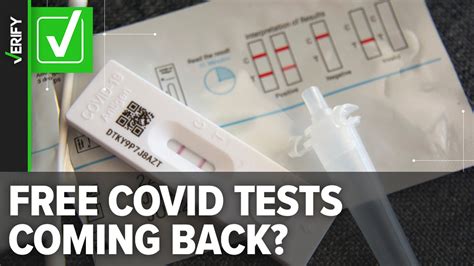
There are several types of COVID-19 testing kits available, each with its unique characteristics and benefits. The most common types include PCR tests, rapid antigen tests, and antibody tests. PCR (Polymerase Chain Reaction) tests are considered the gold standard for COVID-19 testing, as they provide highly accurate results. These tests work by detecting the genetic material of the virus, which is then amplified to produce a detectable signal. Rapid antigen tests, on the other hand, detect the presence of viral antigens, which are proteins on the surface of the virus. These tests are faster and more convenient than PCR tests but may be less accurate.
PCR Tests
PCR tests are the most widely used type of COVID-19 testing kit. They involve collecting a sample of mucus or saliva from the individual being tested, which is then sent to a laboratory for analysis. The sample is mixed with a special solution that contains primers, which are short pieces of DNA that are complementary to the viral genome. The mixture is then heated and cooled repeatedly, allowing the primers to bind to the viral DNA and initiate the amplification process. The amplified DNA is then detected using a fluorescent probe, which produces a signal that indicates the presence of the virus.Rapid Antigen Tests
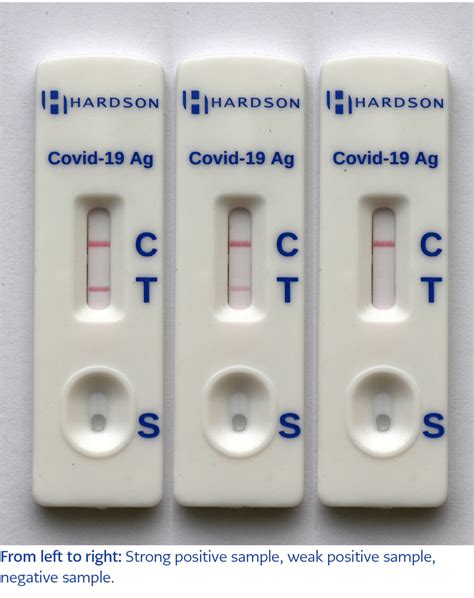
Rapid antigen tests are a faster and more convenient alternative to PCR tests. They work by detecting the presence of viral antigens, which are proteins on the surface of the virus. These tests typically involve collecting a sample of mucus or saliva from the individual being tested, which is then mixed with a special solution that contains antibodies that bind to the viral antigens. The mixture is then applied to a test strip, which produces a colored line or symbol that indicates the presence of the virus. Rapid antigen tests are less accurate than PCR tests but can provide results in as little as 15 minutes.
Antibody Tests
Antibody tests are used to detect the presence of antibodies in an individual's blood, which are proteins produced by the immune system in response to an infection. These tests can help determine whether an individual has been previously infected with the virus and has developed immunity. Antibody tests typically involve collecting a blood sample from the individual being tested, which is then sent to a laboratory for analysis. The sample is mixed with a special solution that contains antigens, which are proteins that stimulate the production of antibodies. The mixture is then analyzed to determine the presence and level of antibodies in the individual's blood.Covid Testing Kits Benefits
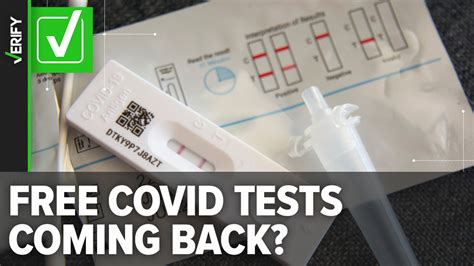
The benefits of COVID-19 testing kits are numerous. They provide a convenient and relatively quick way to determine whether an individual has been infected with the virus, enabling them to take necessary precautions and seek medical attention if needed. COVID-19 testing kits have also played a significant role in helping healthcare professionals track the spread of the virus and develop effective strategies to combat it. Furthermore, these kits have enabled individuals to take control of their health, making informed decisions about their well-being and the well-being of those around them.
Some of the key benefits of COVID-19 testing kits include:
- Convenience: COVID-19 testing kits are relatively easy to use and can provide results in a short amount of time.
- Accuracy: Many COVID-19 testing kits are highly accurate, providing reliable results that can be used to inform treatment decisions.
- Cost-effectiveness: COVID-19 testing kits are often less expensive than traditional testing methods, making them a cost-effective option for individuals and healthcare organizations.
- Accessibility: COVID-19 testing kits are widely available, making them accessible to individuals in remote or underserved areas.
How to Use Covid Testing Kits
Using a COVID-19 testing kit is relatively straightforward. The first step is to choose a reputable and reliable testing kit that meets your needs and budget. Once you have selected a testing kit, follow the instructions provided carefully to ensure accurate results. This typically involves collecting a sample of mucus or saliva, mixing it with a special solution, and applying it to a test strip or sending it to a laboratory for analysis.Here are some tips for using COVID-19 testing kits effectively:
- Always follow the instructions provided with the testing kit carefully.
- Make sure to collect the sample correctly, as this can affect the accuracy of the results.
- Use the testing kit in a well-ventilated area, away from direct sunlight and moisture.
- Avoid touching the test strip or other components of the testing kit, as this can contaminate the sample and affect the accuracy of the results.
Covid Testing Kits Steps
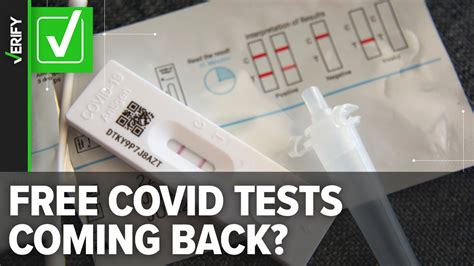
The steps involved in using a COVID-19 testing kit vary depending on the type of kit being used. However, most kits involve the following general steps:
- Collecting a sample: This typically involves collecting a sample of mucus or saliva from the individual being tested.
- Mixing the sample: The sample is then mixed with a special solution that contains primers, antibodies, or other reagents.
- Applying the sample: The mixture is then applied to a test strip or sent to a laboratory for analysis.
- Interpreting the results: The results are then interpreted, either by the individual being tested or by a healthcare professional.
Here are some additional steps to consider when using a COVID-19 testing kit:
- Prepare the testing area: Make sure the testing area is clean and well-ventilated.
- Follow the instructions: Always follow the instructions provided with the testing kit carefully.
- Use personal protective equipment: Wear gloves and a mask when handling the testing kit and sample.
Covid Testing Kits Statistical Data
The statistical data on COVID-19 testing kits is impressive. According to recent studies, the global market for COVID-19 testing kits is expected to reach $13.4 billion by 2025, growing at a compound annual growth rate (CAGR) of 12.1%. The demand for COVID-19 testing kits is driven by the increasing prevalence of the virus, the need for rapid and accurate diagnosis, and the growing awareness of the importance of testing.Some of the key statistical data on COVID-19 testing kits includes:
- The global market for COVID-19 testing kits is expected to reach $13.4 billion by 2025.
- The demand for COVID-19 testing kits is growing at a CAGR of 12.1%.
- The majority of COVID-19 testing kits are used in hospitals and clinics, followed by laboratories and research institutions.
- The Asia-Pacific region is the largest market for COVID-19 testing kits, followed by North America and Europe.
Covid Testing Kits FAQs
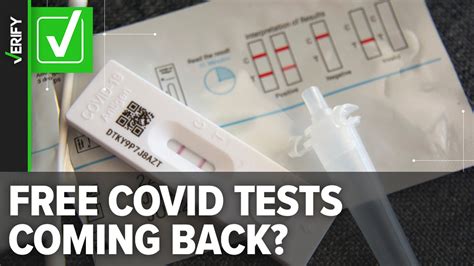
Here are some frequently asked questions about COVID-19 testing kits:
What are COVID-19 testing kits?
+COVID-19 testing kits are medical devices used to diagnose COVID-19 infection.
How do COVID-19 testing kits work?
+COVID-19 testing kits work by detecting the presence of viral antigens or genetic material in a sample.
What are the benefits of COVID-19 testing kits?
+The benefits of COVID-19 testing kits include convenience, accuracy, cost-effectiveness, and accessibility.
In conclusion, COVID-19 testing kits have become a crucial tool in the fight against the pandemic. They provide a convenient and relatively quick way to determine whether an individual has been infected with the virus, enabling them to take necessary precautions and seek medical attention if needed. With the numerous options available, it's essential to understand the different types of COVID-19 testing kits, their benefits, and how to use them effectively. By staying informed and taking control of our health, we can work together to combat the spread of the virus and create a safer, healthier world for everyone.
We invite you to share your thoughts and experiences with COVID-19 testing kits in the comments below. Have you used a COVID-19 testing kit before? What was your experience like? Do you have any questions or concerns about COVID-19 testing kits? Let's work together to create a community that is informed, empowered, and committed to taking control of our health.
